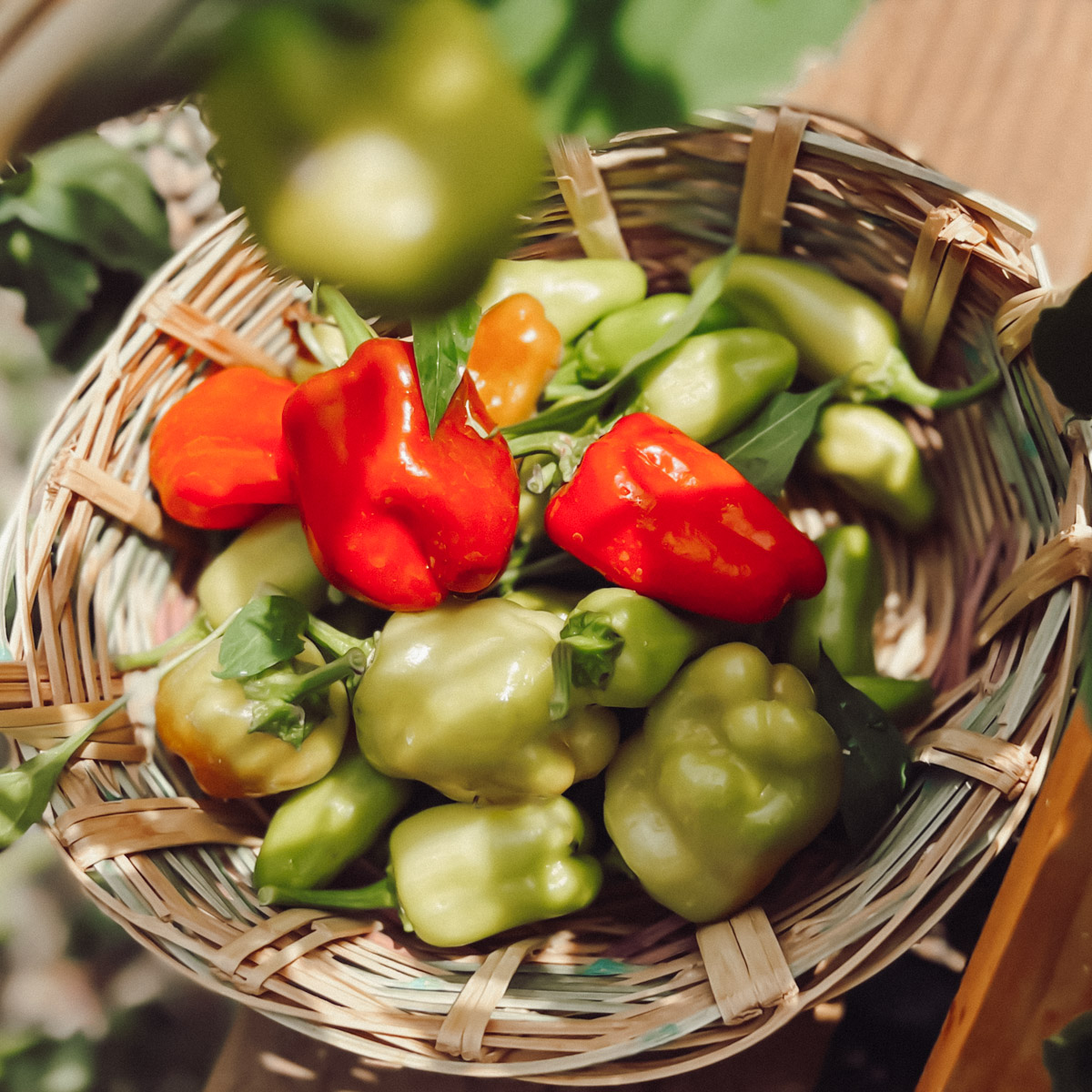Organic Vs. Synthetic Fertilizers: Which Is Best for Supporting Healthy And Balanced Pepper Plants?
In the world of nurturing healthy pepper plants, the option in between artificial and natural fertilizers stands as a pivotal choice with far-ranging ramifications. While both choices purpose to supply crucial nutrients to support plant growth, the subtleties of their influence on the dirt, plant health, and the environment spark a dispute that echoes throughout the gardening community. Understanding the unique advantages and prospective challenges of each plant food type is essential for pepper growers seeking to maximize their yields while keeping a sustainable and eco-conscious technique.
Benefits of Organic Fertilizers
Organic fertilizers offer an environmentally-friendly and sustainable technique to beneficial pepper plants, providing necessary nutrients without making use of artificial chemicals. These all-natural plant foods are stemmed from organic resources such as garden compost, manure, bone meal, and seaweed, promoting soil health and wellness and biodiversity. Unlike synthetic plant foods, organic alternatives launch nutrients gradually, making sure a consistent and balanced supply for pepper plants to grow.
One considerable advantage of organic plant foods is their capability to boost soil structure and water retention. By enhancing dirt health and wellness, organic plant foods promote useful microbial task, which assists in nutrient uptake by pepper plants. Furthermore, organic fertilizers reduce the risk of chemical run-off, shielding water sources from pollution and safeguarding the atmosphere.
Additionally, organic plant foods contribute to long-term dirt fertility by promoting the growth of helpful soil microorganisms. These microorganisms aid damage down natural issue, launching nutrients in a kind that is quickly obtainable to pepper plants. best fertilizers for peppers. By fostering a healthy and balanced dirt community, organic fertilizers support sustainable pepper growing practices that benefit both plants and the atmosphere
Downsides of Synthetic Fertilizers
Synthetic fertilizers, in comparison to their natural equivalents, present various negative aspects when made use of to nourish pepper plants, impacting both plant wellness and environmental sustainability. One significant downside of synthetic plant foods is their propensity to seep nutrients from the dirt promptly.
Furthermore, the overuse of synthetic plant foods can add to water pollution. Excess plant foods not soaked up by plants can get rid of right into water bodies, causing eutrophication, where algae blossoms deplete oxygen degrees in the water, damaging marine life. Moreover, artificial plant foods are commonly derived from non-renewable sources, such as fossil fuels, adding to carbon exhausts and ecological destruction throughout their manufacturing.
Nutrient Absorption Comparison
When contrasting organic and synthetic plant foods in terms of nutrient absorption, natural fertilizers have check my source the advantage of providing an extra balanced and slow-release source of nutrients. Organic fertilizers have a range of macro and trace elements that are not only beneficial for the plants but also more advertise healthy soil microbial task, which aids in nutrient uptake.
Moreover, organic plant foods enhance dirt framework and water retention ability, permitting pepper plants to accessibility nutrients a lot more successfully. This improved dirt high quality assists in origin growth, enabling much better nutrient absorption. Artificial fertilizers, although at first boosting plant growth because of their high nutrient focus, might prevent long-term nutrient absorption by derogatory soil wellness over time.
Ecological Impact Factors To Consider

On the other hand, artificial fertilizers, although often more focused and instantly available to plants, can have destructive results on the atmosphere if not used correctly (best fertilizers for peppers). Their manufacturing needs high power inputs, causing greenhouse gas exhausts and adding to environment modification. The drainage of excess synthetic plant foods can contaminate water sources, leading to eutrophication and damaging water ecological communities.
Best Plant Food Practices for Peppers
When fertilizing pepper plants, enhancing nutrient uptake and minimizing environmental impact are crucial considerations. To achieve this, it is necessary to adhere to best fertilizer methods customized to the details demands of pepper plants. One essential method is to execute a dirt examination before applying any fertilizers. This examination can establish the pH degree of the dirt and identify any nutrient deficiencies, guiding you in choosing one of the most ideal plant food solution.
One important site more crucial technique is to feed pepper plants at the correct time. Commonly, peppers take advantage of receiving fertilizer at planting and after that once again when they begin to flower. Over-fertilizing can result in nutrient discrepancies and harm the plants, so it is vital to follow recommended application rates.
Additionally, picking a well balanced plant food with an NPK proportion that matches pepper plants' needs is basic. Organic plant foods, such as garden compost or manure, can be exceptional choices as they launch nutrients gradually and enhance soil framework with time. Synthetic plant foods can give a quick nutrient boost when required. Eventually, combining natural and synthetic fertilizers carefully can assist support healthy and balanced pepper plants while lessening environmental influence.
Verdict

Organic fertilizers offer an environmentally-friendly and sustainable strategy to nourishing pepper plants, providing essential nutrients without the usage of artificial chemicals. Unlike artificial plant foods, organic options release nutrients slowly, making certain a steady and balanced supply for pepper plants to prosper.
Artificial fertilizers, in contrast to their organic equivalents, posture different negative aspects when made use of to nourish pepper plants, affecting both plant wellness and environmental sustainability. When comparing synthetic and natural fertilizers in terms of nutrient absorption, organic fertilizers have the advantage of offering an extra balanced and slow-release source of nutrients.Moreover, natural fertilizers improve dirt structure and water retention capability, enabling pepper plants to access nutrients much more effectively.